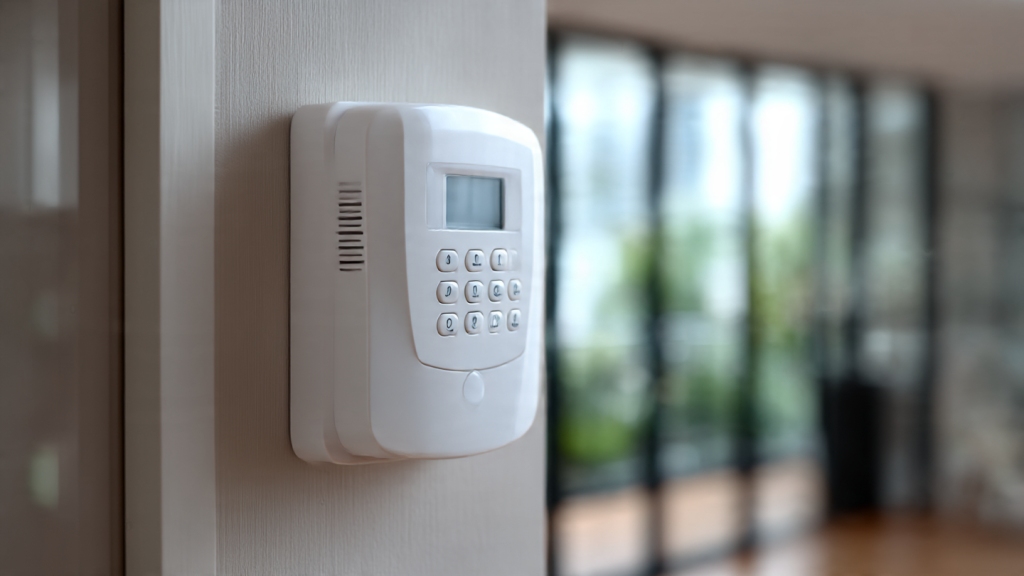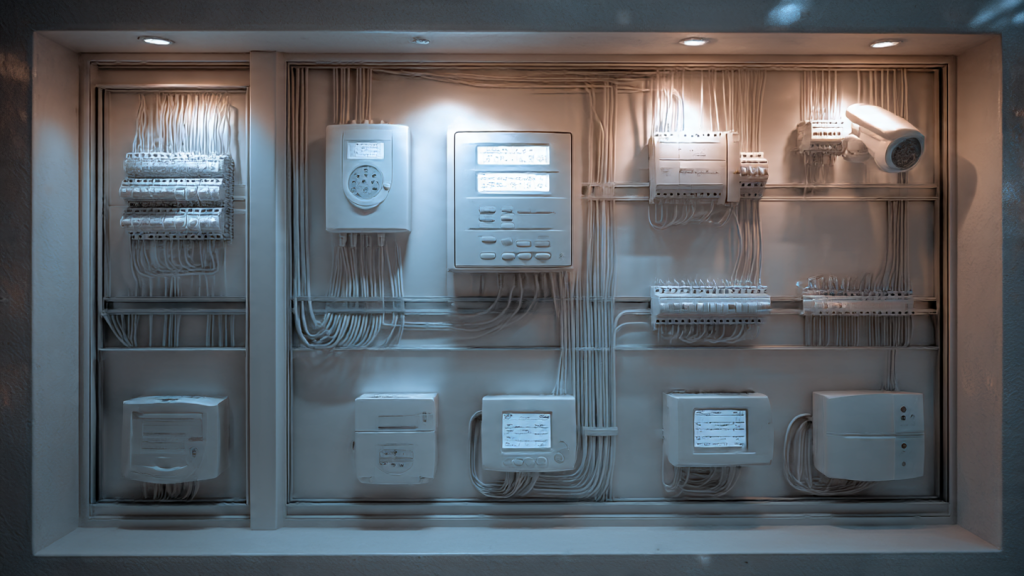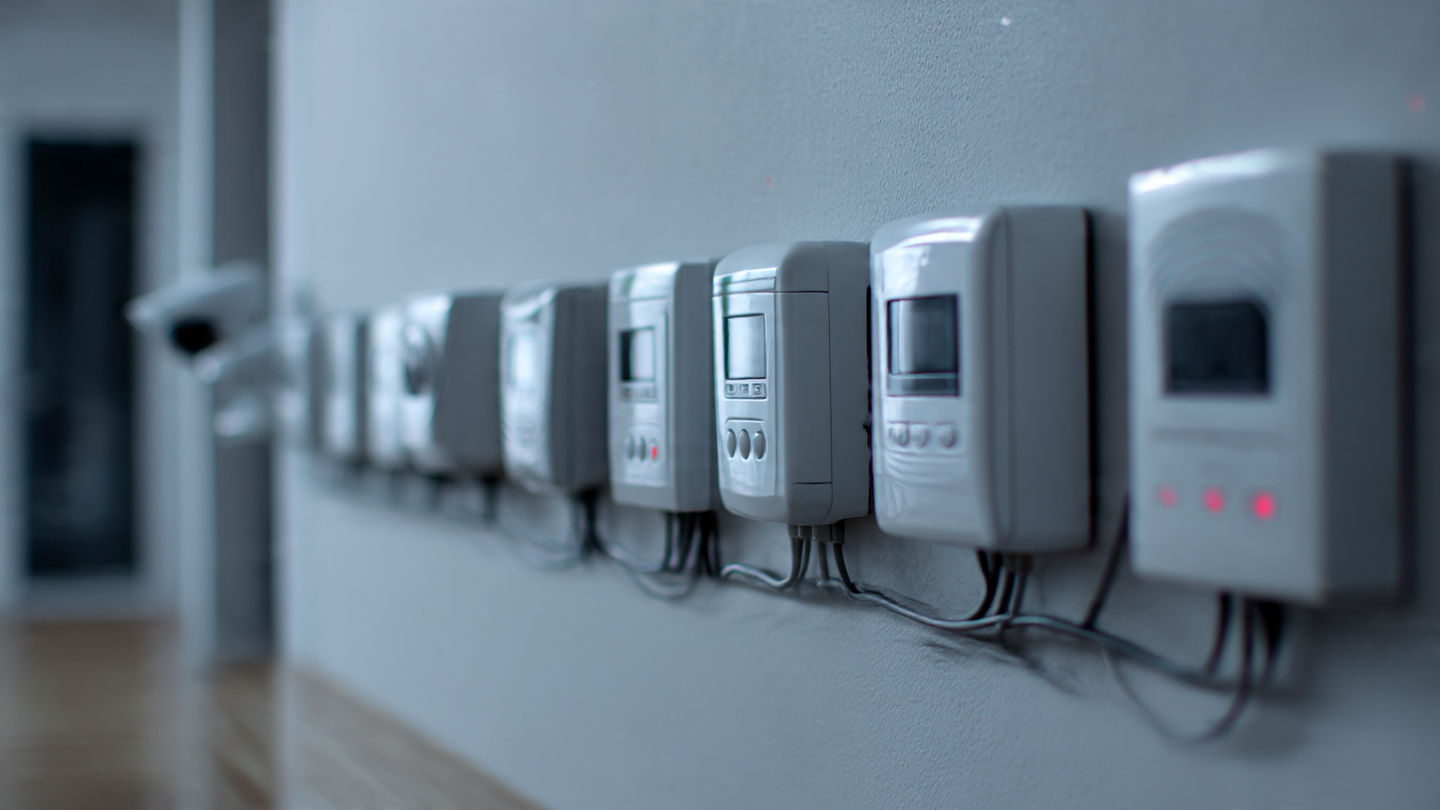Wireless and Wired Alarm Systems
In an age where technology is rapidly evolving, home security systems have become an essential component of safeguarding our homes and loved ones. Among the various options available, alarm systems can be broadly categorized into two types: wireless and wired. Each type has its unique features, advantages, and drawbacks, making it crucial for homeowners to understand their differences before making a decision.
Wireless alarm systems utilize radio signals to communicate between devices, offering flexibility and ease of installation. In contrast, wired alarm systems rely on physical connections through cables, providing a more traditional approach to home security. As crime rates fluctuate and the need for enhanced security grows, the demand for effective alarm systems has surged.
Homeowners are increasingly seeking solutions that not only protect their property but also integrate seamlessly with their lifestyles. The choice between wireless and wired systems often hinges on various factors, including installation preferences, budget constraints, and personal security needs. This article will delve into the pros and cons of both wireless and wired alarm systems, providing a comprehensive overview to help you make an informed decision for your home security needs. Check out this article on how to upgrade your home alarm system: https://alphasecuritycorp.com.au/how-to-upgrade-your-home-alarm-system/

Key Takeaways
- Wireless alarm systems offer easy installation and flexibility, while wired systems provide reliability and security.
- Pros of wireless alarm systems include easy installation, flexibility, and scalability, while cons include potential signal interference and battery replacement.
- Pros of wired alarm systems include reliability, security, and no signal interference, while cons include difficult installation and limited scalability.
- Wireless alarm systems are generally more cost-effective due to easier installation, while wired systems may require higher upfront costs but lower maintenance expenses.
- The installation process for wireless alarm systems is typically easier and less invasive, while wired systems may require professional installation and drilling.
Pros and Cons of Wireless Alarm Systems
Wireless alarm systems have gained immense popularity in recent years due to their convenience and ease of use. One of the most significant advantages of these systems is their straightforward installation process. Without the need for extensive wiring, homeowners can set up a wireless system in a matter of hours, often without professional assistance.
This feature is particularly appealing for renters or those living in older homes where running wires may be challenging or impractical. Additionally, wireless systems are highly portable; if you move to a new location, you can easily take your system with you. However, wireless alarm systems are not without their drawbacks.
One of the primary concerns is their reliance on battery power. While many modern wireless devices come equipped with long-lasting batteries, there is always the risk of battery failure or depletion at critical moments. Furthermore, wireless systems can be susceptible to interference from other electronic devices or environmental factors, potentially compromising their effectiveness.
Homeowners must also consider the potential for hacking; although encryption technologies have improved significantly, wireless signals can still be intercepted by savvy intruders.
Pros and Cons of Wired Alarm Systems

Wired alarm systems have been a staple in home security for decades, offering a robust and reliable solution for homeowners. One of the most notable advantages of wired systems is their stability. Since they rely on physical connections, they are less prone to interference or signal loss compared to their wireless counterparts.
This reliability makes wired systems an excellent choice for larger homes or properties with complex layouts where consistent coverage is essential. Additionally, wired systems often have a longer lifespan than wireless systems, as they do not rely on batteries that require regular replacement. On the flip side, wired alarm systems come with their own set of challenges.
The installation process can be labor-intensive and time-consuming, often requiring professional assistance to ensure proper setup. This can lead to higher upfront costs compared to wireless systems. Moreover, once installed, making changes or upgrades to a wired system can be cumbersome and disruptive, as it may involve drilling holes or running new cables throughout the home.
For homeowners who value flexibility and adaptability in their security solutions, these limitations may be significant drawbacks.
Cost Comparison Between Wireless and Wired Alarm Systems
| Comparison Factor | Wireless Alarm Systems | Wired Alarm Systems |
|---|---|---|
| Installation Cost | Lower | Higher |
| Maintenance Cost | Lower | Higher |
| Reliability | Dependent on signal strength | Dependent on physical connections |
| Flexibility | Easy to relocate and expand | Fixed and difficult to modify |
When considering a home security system, cost is often a primary factor influencing the decision-making process. Generally speaking, wireless alarm systems tend to have lower initial costs due to their simpler installation requirements. Homeowners can often purchase a complete wireless system at a reasonable price point and set it up themselves without incurring additional labor costs.
However, it is essential to factor in ongoing expenses such as battery replacements and potential subscription fees for monitoring services. In contrast, wired alarm systems typically involve higher upfront costs due to the need for professional installation and the materials required for wiring. While these systems may have higher initial expenses, they often provide long-term savings in terms of maintenance and reliability.
Wired systems usually require less frequent servicing and do not rely on batteries that need replacing regularly. Ultimately, the cost comparison between wireless and wired alarm systems will depend on individual circumstances, including budget constraints and long-term security goals.
Installation Process for Wireless and Wired Alarm Systems
The installation process for wireless alarm systems is one of their most appealing features. Homeowners can typically complete the setup in just a few hours by following straightforward instructions provided by the manufacturer. Most wireless systems come with adhesive mounts or brackets that allow users to place sensors and cameras in optimal locations without the need for drilling or extensive modifications to their homes.
This ease of installation makes wireless systems particularly attractive for those who prefer a DIY approach or are renting their living space. Conversely, the installation process for wired alarm systems can be significantly more complex and labor-intensive. Homeowners often need to hire professional installers who possess the expertise required to run cables through walls and ceilings while ensuring that all components are correctly connected.
This process can take several hours or even days, depending on the size of the property and the complexity of the system being installed. While this may result in a more stable and reliable setup, it also means higher costs and potential disruptions during installation.
Reliability and Security of Wireless and Wired Alarm Systems
When it comes to reliability and security, wired alarm systems generally hold an advantage over their wireless counterparts. The physical connections used in wired systems make them less susceptible to interference from other electronic devices or environmental factors such as weather conditions. This stability ensures that homeowners can rely on their alarm system to function consistently without unexpected disruptions.
Additionally, wired systems are less vulnerable to hacking attempts since they do not transmit signals over radio frequencies. On the other hand, advancements in technology have significantly improved the reliability of wireless alarm systems in recent years. Many modern wireless devices utilize advanced encryption protocols that enhance security against potential hacking threats.
Furthermore, manufacturers have developed features such as dual-band connectivity that allows devices to switch between frequencies to avoid interference. While wireless systems may still face challenges related to battery life and signal strength, ongoing innovations continue to bolster their reliability and security.
Flexibility and Scalability of Wireless and Wired Alarm Systems
Flexibility is one of the standout features of wireless alarm systems. Homeowners can easily add or remove components as needed without worrying about extensive rewiring or structural changes to their homes. This adaptability makes wireless systems ideal for those who may want to expand their security setup over time or adjust it based on changing needs.
For instance, if a homeowner decides to add outdoor cameras or additional sensors in response to new security concerns, they can do so with minimal hassle. In contrast, wired alarm systems offer limited flexibility once installed. While they provide a stable foundation for home security, making changes or upgrades can be cumbersome and costly due to the need for professional assistance.
Homeowners may find themselves facing significant disruptions if they wish to expand their system or relocate components after installation. For those who prioritize adaptability in their security solutions, this limitation may be a significant consideration when choosing between wired and wireless options.
Making the Best Choice for Your Home Security Needs
In conclusion, both wireless and wired alarm systems offer unique advantages and disadvantages that cater to different homeowner preferences and needs. Wireless systems excel in terms of ease of installation, flexibility, and portability, making them an attractive option for those seeking a straightforward solution without extensive modifications to their homes. However, concerns regarding battery life and potential interference should not be overlooked.
On the other hand, wired alarm systems provide unparalleled reliability and stability due to their physical connections but come with higher installation costs and limited flexibility once set up. Ultimately, the best choice for your home security needs will depend on your specific circumstances—considering factors such as budget constraints, property layout, lifestyle preferences, and long-term security goals will help guide your decision-making process. As you weigh your options between wireless and wired alarm systems, remember that investing in a robust home security solution is an essential step toward protecting your property and loved ones.
Whether you choose a modern wireless system with smart alarms that connect to your phone or opt for a traditional wired setup with reliable surveillance cameras and doorbell cameras, prioritizing your home’s safety will always be worth it in the long run.
When considering the choice between wireless and wired alarm systems, it’s essential to understand the broader context of home security solutions available in the market. For those in Sydney exploring wireless alarm systems, it’s beneficial to also consider how to effectively position your home security cameras to maximize coverage and efficiency. A related article that provides valuable insights on this topic is available on Alpha Security Corp’s website. You can read more about it by visiting How to Position Your Home Security Cameras. This article offers practical advice on camera placement, which is crucial for enhancing the overall security of your home, whether you opt for a wireless or wired alarm system.
FAQs
What are the differences between wireless and wired alarm systems?
Wireless alarm systems use radio frequency signals to communicate between the various components of the system, while wired alarm systems use physical wires to connect the components. Wireless systems are easier to install and can be more flexible in terms of placement, while wired systems are generally more reliable and less susceptible to interference.
Which is more secure, wireless or wired alarm systems?
Wired alarm systems are generally considered to be more secure than wireless systems, as they are not susceptible to hacking or jamming of radio signals. However, wireless systems have improved in security features and encryption, making them a viable option for many homeowners.
What are the advantages of wireless alarm systems?
Wireless alarm systems are easier to install, as they do not require the running of wires throughout the home. They are also more flexible in terms of placement, as components can be easily moved or added without the need for rewiring. Additionally, wireless systems can be more aesthetically pleasing, as they do not have visible wires.
What are the advantages of wired alarm systems?
Wired alarm systems are generally more reliable than wireless systems, as they are not susceptible to interference or signal loss. They also do not require batteries for operation, which means they are not at risk of failing due to dead batteries. Additionally, wired systems may be preferred in areas with poor wireless signal strength.
Which type of alarm system is more cost-effective?
Wireless alarm systems are generally more cost-effective in terms of installation, as they do not require the labor and materials for running wires throughout the home. However, wired systems may be more cost-effective in the long run, as they do not require battery replacements or upgrades to wireless technology.











